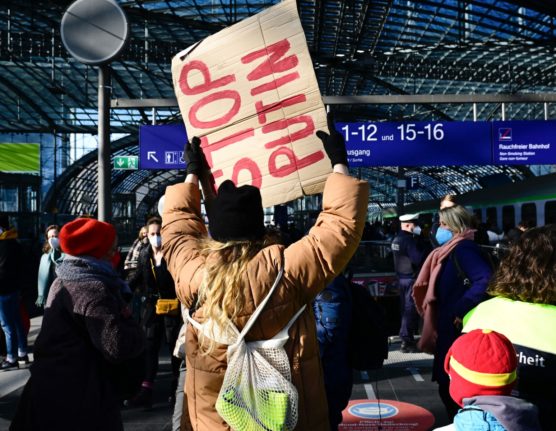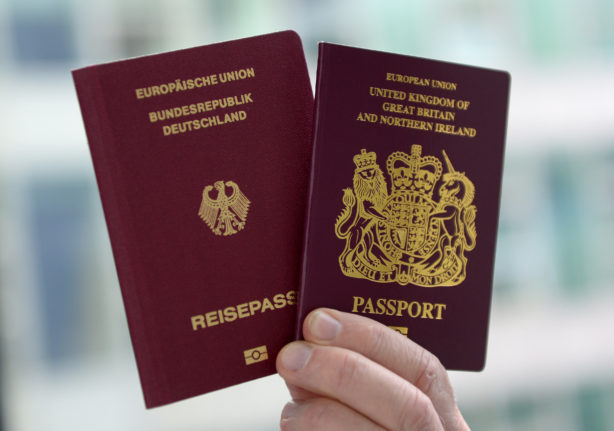In 2023, significantly fewer people moved from Ukraine to Germany than in the previous year. According to figures from the Germany’s Statistical Office (Destatis), 277,000 people moved from Ukraine to Germany and 156,000 moved back.
“This results in a net immigration of 121,000 people,” Destatis announced on Thursday.
In 2022, the year the Russian attack on Ukraine began on February 24th, the Statistical Office counted 1.1 million arrivals from Ukraine and 138,000 departures – resulting in a net immigration of 960,000 people.
Even with the sharp decline last year, the number of immigrants from Ukraine was higher than in the years before the Russian war of aggression. From 2019 to 2021 net immigration from Ukraine ranged from 5,000 to 7,000 people each year.
Olena Barashyvets, who moved to Berlin from Ukraine some years before the war broke out, told The Local about how Russia’s invasion impacted her family.
She counts herself lucky because none of her family or close friends have been killed. But her parents did have to flee their house, and her mom, great aunt and great uncle all took refuge in Germany for a some months in 2022.
“My parents live in Bucha,” Barashyvets told The Local. “They left their house on February 25th, 2022 and went west. They were lucky to have left when they did…Bucha was occupied and Russian soldier moved into our family house and lived there for the month of March. They robbed from and damaged it before Bucha was liberated on March 31st.”
She added that her parents were able to return to their home some months later, in the summer of 2022.
READ ALSO: Reader question: Can Ukrainians get dual nationality in Germany?
How many Ukrainian immigrants have settled in Germany?
The high level of immigration has caused a spike in the population with Ukrainian citizenship in Germany.
As of October 2023, the total population of Ukrainian citizens in Germany was estimated to be 1.15 million – up from just 138,000 people in January 2022.
Another way to think about it: in the first ten months of 2022 the number of Ukrainians in Germany increased sevenfold. In comparison, in the first ten months of 2023 the increase was significantly less, equating to seven percent more.
According to Destatis, the share of Ukrainians in the total population has risen from 0.2 percent before the war to 1.4 percent now.
READ ALSO: Germany’s population grows to 84.3 million amid record migration
A large proportion of the immigrants, 60 percent, were female, and about one-third of them were minors. According to preliminary results from Destatis, around 40 percent of those who immigrated by mid-2023 were single parents and their children.
“Ukrainian nationals were the second largest foreign population group in Germany after Turkish nationals (which make up 1.6 percent of the total population) in October 2023,” said Destatis.
Hamburg and Berlin are home to the highest share of Ukrainian residents
In October 2023, most Ukrainians lived in the most populous federal states of North Rhine-Westphalia (234,000), Bavaria (168,000), and Baden-Württemberg (159,000).
Measured proportionately, in relation to the total population of each state, Hamburg and Berlin were home to the highest share of Ukrainian nationals (at 1.7 and 1.6 percent respectively).
The fewest Ukrainians, on the other hand, lived in Rhineland-Palatinate, Schleswig-Holstein and Brandenburg (1.2 percent each).
READ ALSO:



 Please whitelist us to continue reading.
Please whitelist us to continue reading.
Member comments